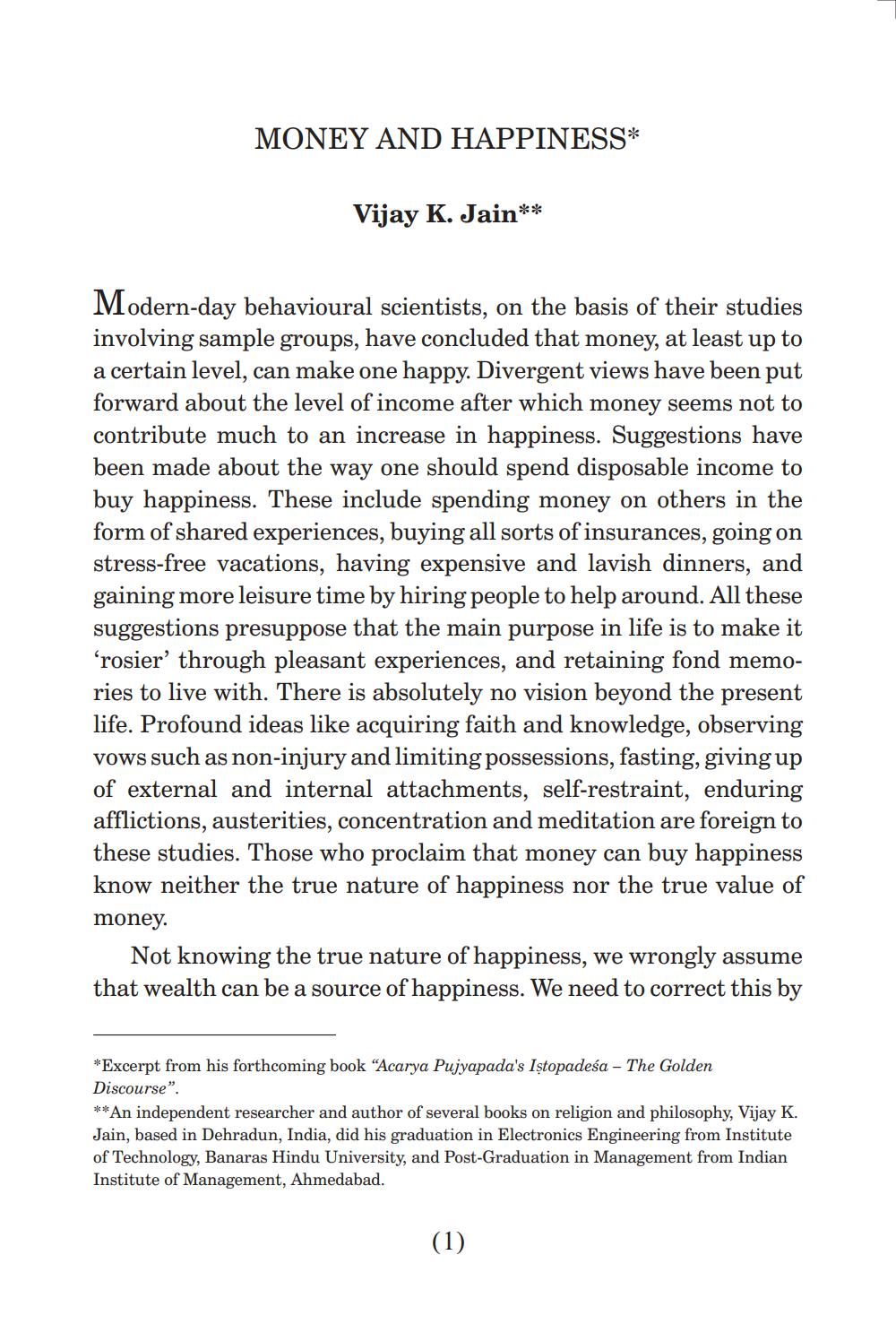________________
MONEY AND HAPPINESS*
Vijay K. Jain**
Modern-day behavioural scientists, on the basis of their studies involving sample groups, have concluded that money, at least up to a certain level, can make one happy. Divergent views have been put forward about the level of income after which money seems not to contribute much to an increase in happiness. Suggestions have been made about the way one should spend disposable income to buy happiness. These include spending money on others in the form of shared experiences, buying all sorts of insurances, going on stress-free vacations, having expensive and lavish dinners, and gaining more leisure time by hiring people to help around. All these suggestions presuppose that the main purpose in life is to make it 'rosier' through pleasant experiences, and retaining fond memories to live with. There is absolutely no vision beyond the present life. Profound ideas like acquiring faith and knowledge, observing vows such as non-injury and limiting possessions, fasting, giving up of external and internal attachments, self-restraint, enduring afflictions, austerities, concentration and meditation are foreign to these studies. Those who proclaim that money can buy happiness know neither the true nature of happiness nor the true value of
money.
Not knowing the true nature of happiness, we wrongly assume that wealth can be a source of happiness. We need to correct this by
*Excerpt from his forthcoming book "Acarya Pujyapada's Iṣtopadesa - The Golden Discourse".
**An independent researcher and author of several books on religion and philosophy, Vijay K. Jain, based in Dehradun, India, did his graduation in Electronics Engineering from Institute of Technology, Banaras Hindu University, and Post-Graduation in Management from Indian Institute of Management, Ahmedabad.
(1)




